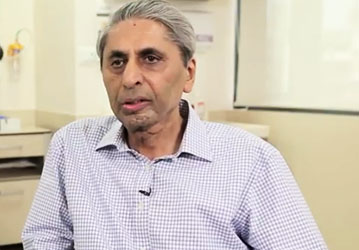Prostate cancer (PCa) is the most frequently diagnosed cancer in men, three-quarters of all men diagnosed with PCa are aged ⩾65 years. It is diagnosed in almost 2000 men each day worldwide, and one man is estimated to die from the disease every 2 min.
Risk Factors
Age: 6 out of 10 cases are found in men older than 65. The chance of having prostate cancer increases with advancing age.
Family history: Having a father or brother with prostate cancer more than doubles a man’s risk of developing this disease. The risk is much higher for men with several affected relatives, particularly if their relatives were young when the cancer was found. This suggests that there may be a genetic factor in some cases.
Men who eat a lot of red meat or high-fat dairy products appear to have a slightly higher chance of getting prostate cancer. These men also tend to eat fewer fruits and vegetables. Though it’s not certain which of these factors is responsible for raising the risk.
Obesity: Some studies have also found that obese men may be at greater risk for having more advanced prostate cancer and of dying from prostate cancer.
Smoking: Some research has linked smoking to a possible small increased the risk of dying from prostate cancer, but this finding needs to be confirmed by other studies.
PSA screening:
Prostate cancer is highly curable if diagnosed and correctly treated in early stage. Of all prostate cancers, 85% were detected late (stages III and IV) in India in contrast to the United States where only 15% were diagnosed in the late stages, so screening has pivotal role to prevent cancer related morbidity and mortality. One European study showed deaths from prostate cancer could be reduced by 20% if there was a screening programme. It was estimated that to prevent 1 prostate cancer death would require screening 781 men and detecting cancer in an additional 27 men.
There are usually no symptoms during the early stages of prostate cancer. However, if symptoms do appear, they usually involve one or more of the following:
Advanced prostate cancer can involve the following symptoms:
If the cancer spreads to the spine and compresses the spinal cord, there may be:
The effects of body weight, physical activity, and diet on prostate cancer risk are not clear, but there are things you can do that might lower your risk, such as:
We offer a holistic approach to Prostate cancer management by virtue of a multimodal team of Minimal access surgeons, Radiation therapists, and Medical oncologists. We utilise advanced imaging modalities in the form of MP-MRI to accurately stage prostate cancer. We have world class treatment options with latest technologies and protocols, in the form of Robotic Prostatectomy by India’s most experienced minimal access surgery team.

